Are Rest and Working Hours Regulations for Seafarers Overrated?
The concept of rest hours and working hours on board ships is probably overrated. People from the industry have lately been harping on thorough implementation of rest and working hours’ regulations on board ships. However, the fact is those working on ships already know how to manage these hours quite well, irrespective of any document or regulations stating the same.
Going by the rest and working hours’ regulations, “rest” on board ships technically means sleep. However, working conditions on ships are way too different. In a planned sort of work, one can have planned hours of sleep, but in case of a breakdown or some problem, even if one is sent to sleep, he won’t be able to do so as his mind would be over-engaged with the existing problem.
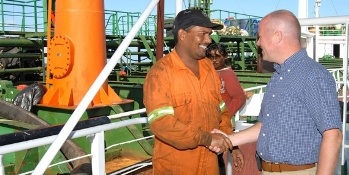
Seafarers on board ships are good at keeping a track of working hours of their fellow mates. If a person has been working continuously, his colleague wouldn’t hesitate to take his place and ask him to come back after a certain period of time. On the other hand the relieved person would happily accept the concern shown by his colleagues and in most of the cases turn up earlier as he would be concerned about his colleague and also about the job that the other guys are doing and the stuff he’s missing out on.
Also, one cannot expect every shipping document to be perfect. People need to understand that more than the document it’s the spirit of a particular provision that is more important. It is not necessary that MLC 2006 would be written by people having long experiences of shipboard work. Thus, we shouldn’t be afraid to modify, adjust and innovate, but of course within limits.
Rest and working hours violations are serious. If rest hours are not given at all repeatedly or if there is dissatisfaction among seafarers, then it is a serious matter. But if a certain number of “Xs” are not put on the excel sheets, it shouldn’t be considered an issue to be concerned about. Presently on most of the ships, the juniors sit down on a certain day and affix crosses (“x”) on working hours sheets of all professionals, obtain their signatures, and stack them in fat files. Needless to say, most of the seafarers consider these rules just a formality, which needs to be done away with whenever required.
Many a times seafarers on ships get overworked, say, when calling Singapore port ( example) for taking fuel oil and lube oil bunkers, provisions, stores and spares during a limited port stay. They manage all these jobs along with the inward and outward maneuvering of the ship in the port. This increases their working hours substantially. However, seafarers have always been managing such jobs sportingly and with the right spirit. They then compensate later by catching up on sleep when the ship is in open seas. When such habits occur naturally to a seafarer, one need not bother too much about the quantum of “X” marks on certain sheets related to working hours documentation.

Having said all this, if the whole issue of rest hours is considered from a different angle, fatigue and stress on board ships, in many cases, is the result of incompetence and bad habits. A competent and skilled seafarer, who loves his job, is rarely seen complaining of fatigue. Hours of work and hours of rest are simply meaningless for such seafarers.
Image Credits
missiontoseafarers, icma, jbschool
Do you have info to share with us ? Suggest a correction
Related Posts
Subscribe To Our Newsletters
By subscribing, you agree to our Privacy Policy and may receive occasional deal communications; you can unsubscribe anytime.



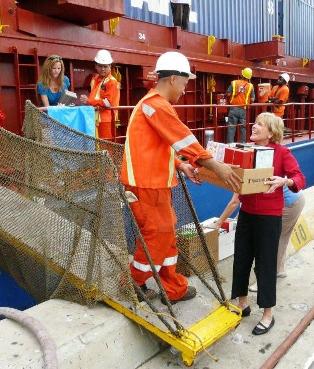





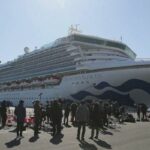


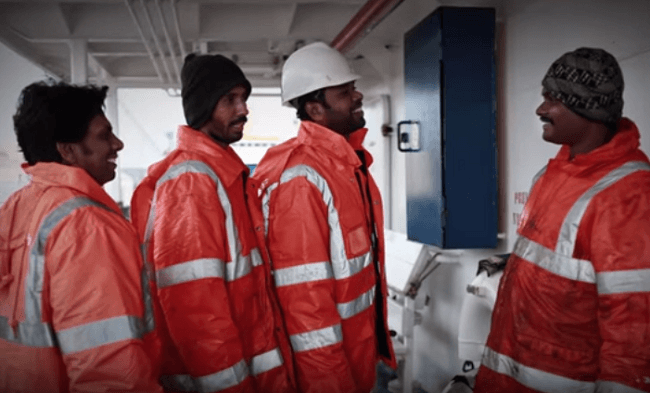
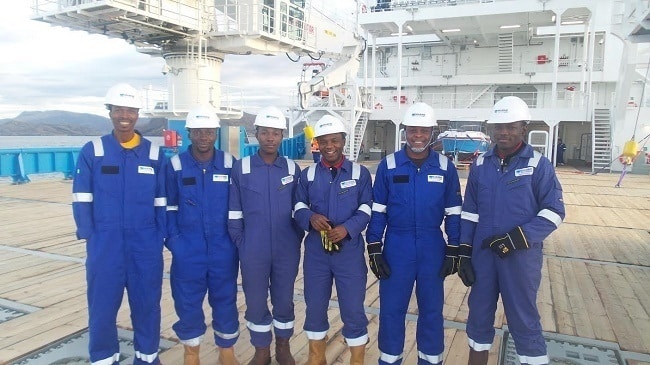
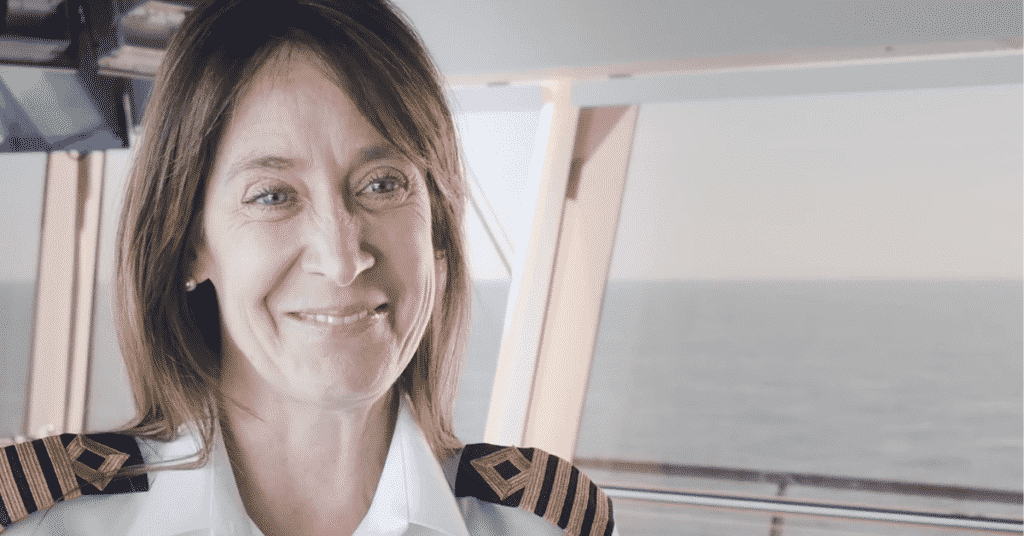


Rest Hours?maybe it works in long voyage but in Europe Trade vessels and few crew onboard it’s a big NO!!!
Lol we need rest hours Sir .
And nothing is being overrated may be u ve forgotten ur days of Cadet training days on lighter note.
The IMO ILO and rest of the the governing bodies are not some bunch of Babu’s .
Hours of work and hours of rest are simply meaningless for such seafarers. This one at the end was hilarious?
If the seafarers could be trusted to do the right thing, there would have been no need of any regulation of any kind. Its really disappointing to see a senior officer undermine the important issue of seafarer fatigue, which has been scientifically proven as the cause of majority of accidents at sea.
An immature article.The fact is that these regulations are a reaction to a lot of mishaps and are well researched unlike armchair analysis.Senior officers who think of being overworked and lack of rest to be taken ‘sportingly’ and ‘in the right spirit’ -air hook- are a hazard to safety of life, environment and the ship itself.
This article is very concerning and in my opinion completely wrong and as mentioned in a previous comment – immature. Every other industry in the western world is protected by rules and regulations allowing a work/life balance. If these werent in place then industries could implement any hours of work for their employees – who would have no regulatory protection. Ive sailed with many good seafarers but in all honestly not many good managers. This is not all together their fault however as available manpower on ships is probably at it lowest in history. Not to mention the additional pressures from charters, terminals and shipping companies themselves – it would be easy for the Masters to entirely dismiss work and rest hours so that the above are satisfied. However he does not have to do this as he has the power under the MLC to control his work and rest periods of his crew which is upheld by the Administration. Seafarers need more protection and better welfare conditions not less.
A very irresponsible article.
What’s is the point that Mr Mahendra Singh is trying to make?
In my opinion, having formulated the rules for work/rest hours, we need to employ technology to monitor a seafarers rest hours more accurately.
The elephant in the room is the Minimum Safe Manning Document. Unless we have enough seafarers onboard, rest hours will continue to be a problem. Also 6 on/ 6 off should be banned.
It appears to create a lobby or positive atmosphere for shipping companies to exploit further and trying to manipulate views and make IMO make amendments. So that companies can easily manipulate further. When you leave a loophole of finger size , the companies and authorities squeeze the full hand.
“Rest/Work hour Management MLC “ -the ground reality is fudging.
Contract agreement – Big fudging.
Making a regulation is something like just to pass the buck or burden of implementation on seafarer only and PROUDLY say see we have given you tools to keep yourself safe and not overworked.
Where as the companies can blackmail the poor seafarer and keep them overworking and ask on-board management to produce clean Work/Rest hr sheets ..The complaining guy either quietly blacklisted or punished in several ways.
When a seafarers contract is completed or near completion, company sends a fresh contract and seafarers has no choice but to sign and continue beyond their MLC required period.
The authorities never bothered to look and companies exploit loopholes.
Every regulation IMO came up with for seafarer welfare , has done very little to them and increased workload many times. They have always been counterproductive. And that’s why seafarers has always been at the receiving end.
So please , if you wish to lobby , then lobby for seafarer and don’t sell your soul for few bucks.
Cut down large number of regulations and forms formalities, multiple paper works from company specific IMO requirement,terminal requirement, port state requirements and if they are not enough , then company reports , pre work post work photographic reports and rest of all nonsenses.
These are the main culprits for seafarers plight apart from actual physical workloads and criminalisations.
New regulations are created and dumped on seafarers saying these are for seafarer welfare and safety.
None of the regulations ever advises or forces companies to increase the manpower for each additional workload. The Falgstates ever reducing the safe manning numbers to lure maximum companies to fly their flags and both can flourish.
Please do t talk about seafarer welfare anymore. Every single time such talks have produced additional workloads on seafarers only. ? Leave is alone. Thank you but no thank you.?